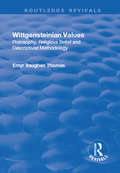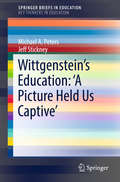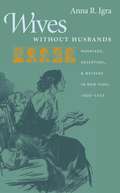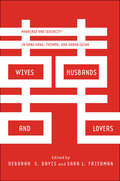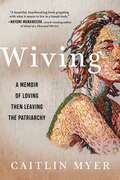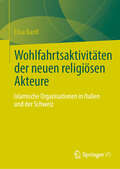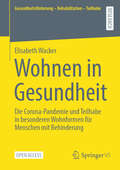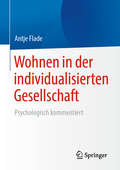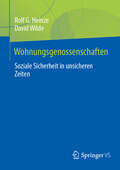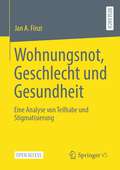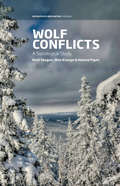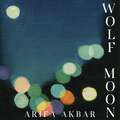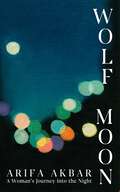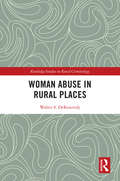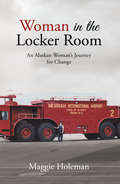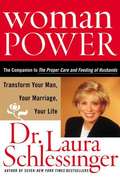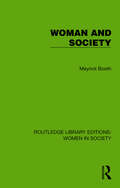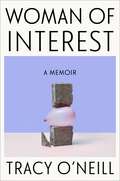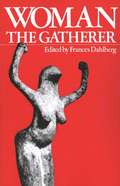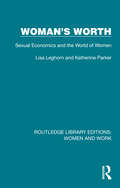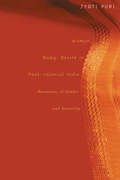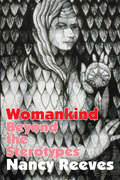- Table View
- List View
Wittgensteinian Values: Philosophy, Religious Belief and Descriptivist Methodology
by Emyr Vaughan ThomasThis title was first published in 2001. This work examines the self-renouncing dimension which Wittgensteinian philosophy subscribes to ethico-religious ideals. "Wittensteinian values" are explored through a range of literary and cultural illustrations from Wittgenstein's own European milieu. The book also highlights an alternative model of self-renouncing faith, which has methodological implications for how a Wittgensteinian descriptivist approach should be carried out. Wittgensteinian assumptions about the nature of self-renunciation, the religious believer's orientation to the world and the place of the metaphysical in religion are among some of the elements that need to be reappraised.
Wittgenstein’s Education: 'A Picture Held Us Captive’
by Michael A. Peters Jeff StickneyDedicated to educators who are not philosophy specialists, this book offers an overview of the connections between Wittgenstein’s later philosophy and his own training and practice as an educator. Arguing for the centrality of education to Wittgenstein’s life and works, the authors resist any reduction of Wittgenstein’s philosophy to remarks on pedagogy while addressing the current controversy surrounding the role of training in the enculturation process. Significant events in his education and life are examined as the background for successful interpretation, without lending biographical details explanatory force. The book discusses the importance of Wittgenstein’s training and dismissal as an elementary teacher (1920-26) in light of his later, frequent use (1930s-40s) of many ‘scenes of instruction’ in his Cambridge lectures and notebooks. These depictions culminated in his now famous Philosophical Investigations -- a counter to his earlier philosophy in the Tractatus. Wittgenstein came to distinguish between empirical inquiries into how education, language or mathematics might ideally work, from grammatical studies of how we learn on the rough ground to normatively go-on as others do – often without explicit rules and with considerable degrees of ambiguity, for instance, in implementing new guidelines during a curriculum reform or in evaluating teachers. The book argues that Wittgenstein’s reflections on education -- spanning from mathematics training to the acquisition of language and cultivation of aesthetic appreciation -- are of central significance to both the man and his pedagogical style of philosophy.
Wives without Husbands
by Anna R. IgraShedding new light on contemporary campaigns to encourage marriage among welfare recipients and to prosecute "deadbeat dads," Wives without Husbands traces the efforts of Progressive reformers to make "runaway husbands" support their families. Anna R. Igra investigates the interrelated histories of marriage and welfare policy in the early 1900s, revealing how reformers sought to make marriage the solution to women's and children's poverty. Igra taps a rich trove of case files from the National Desertion Bureau, a Jewish husband-location agency, and follows hundreds of deserted women through the welfare and legal systems of early twentieth-century New York City. She integrates a broad range of topics, including Americanization as a gendered process, breadwinning as a measure of manhood, the relationship between consumer culture and social policy formation, the class dimensions of family law, and the Jewish community as a source of welfare policy innovation. Igra analyzes the history of antidesertion reform from its emergence in social policy debates, through the establishment of domestic relations courts, to Depression relief programs. She shows that early twentieth-century reformers, by attempting to make instrumental use of poor people's intimate relations, anticipated welfare policies in our own time that promote marriage as an answer to poverty.
Wives, Husbands, and Lovers: Marriage and Sexuality in Hong Kong, Taiwan, and Urban China
by Deborah S. Davis Sara L. FriedmanWhat is the state of intimate romantic relationships and marriage in urban China, Hong Kong, and Taiwan? Since the 1980's, the character of intimate life in these urban settings has changed dramatically. While many speculate about the 21st century as Asia's century, this book turns to the more intimate territory of sexuality and marriage—and observes the unprecedented changes in the law and popular expectations for romantic bonds and the creation of new families. Wives, Husbands, and Lovers examines how sexual relationships and marriage are perceived and practiced under new developments within each urban location, including the establishment of no fault divorce laws, lower rates of childbearing within marriage, and the increased tolerance for non-marital and non-heterosexual intimate relationships. The authors also chronicle what happens when states remove themselves from direct involvement in some features of marriage but not others. Tracing how the marital "rules of the game" have changed substantially across the region, this book challenges long-standing assumptions that marriage is the universally preferred status for all men and women, that extramarital sexuality is incompatible with marriage, or that marriage necessarily unites a man and a woman. This book illustrates the wide range of potential futures for marriage, sexuality, and family across these societies.
Wiving: A Memoir of Loving Then Leaving the Patriarchy
by Caitlin MyerThe Most Anticipated Memoirs of 2020, She Reads • Bay Area Authors to Read This Summer, 7X7 A literary memoir of one woman's journey from wife to warrior, in the vein of breakout hits like Cheryl Strayed's Wild and Jeannette Walls's The Glass Castle. At thirty-six years old, Caitlin Myer is ready to start a family with her husband. She has left behind the restrictive confines of her Mormon upbringing and early sexual trauma and believes she is now living her happily ever after . . . when her body betrays her. In a single week, she suffers the twin losses of a hysterectomy and the death of her mother, and she is jolted into a terrible awakening that forces her to reckon with her past—and future. This is the story of one woman&’s lifelong combat with a culture—her &“escape&” from religion at age twenty, only to find herself similarly entrapped in the gender conventions of the secular culture at large, conventions that teach girls and women to shape themselves to please men, to become good wives and mothers. The biblical characters Yael and Judith, wives who became assassins, become her totems as she evolves from wifely submission to warrior independence. An electric debut that loudly redefines our notions of womanhood, Wiving grapples with the intersections of religion and sex, trauma and love, sickness and mental illness, and a woman&’s harrowing enlightenment. Building on the literary tradition of difficult women who struggle to be heard, Wiving introduces an urgent, striking voice to the scene of contemporary women&’s writing at a time when we must explode old myths and build new stories in their place.
Wohlbefinden und Gesundheit im Jugendalter: Theoretische Perspektiven, empirische Befunde und Praxisansätze
by Robin Samuel Andreas Heinen Helmut Willems Claus VögeleDieser Open-Access-Band bietet eine Übersicht disziplinärer Zugänge und aktueller empirischer Befunde zum Wohlbefinden und gesundheitsrelevanten Verhalten von Jugendlichen und jungen Erwachsenen. Internationale Perspektiven renommierter Experten sowie Beiträge von Akteuren aus verschiedenen Praxisfeldern in Luxemburg ergänzen die Sammlung. Sie machen diesen Band zu einem unverzichtbaren Werk nicht nur für Wissenschaftler, sondern auch für Fachpersonen aus der Praxis mit einem Interesse am Thema Wohlbefinden und Gesundheit junger Menschen.
Wohlfahrtsaktivitäten der neuen religiösen Akteure: Islamische Organisationen in Italien und der Schweiz
by Elisa BanfiDieses Buch bietet eine vergleichende Untersuchung islamischer Wohlfahrtsaktivitäten in städtischen Gebieten sowohl in der Schweiz als auch in Italien, um allgemeine Fragen im Zusammenhang mit dem Wohlfahrtsengagement islamischer Organisationen in Europa zu behandeln.„Wohlfahrtsaktivitäten der neuen religiösen Akteure“ beschreibt, wie islamische Organisationen in Genf, Mailand, Rom und Zürich koordiniert und strukturiert wurden - vier Städte, die in der Literatur über islamische Wohlfahrt noch nicht analysiert wurden. Untersucht werden auch die institutionellen Möglichkeiten und Beschränkungen, die Formen sozialer religiöser Aktivitäten auf lokaler und internationaler Ebene beeinflussen können, indem es zwei Forschungsbereiche zusammenbringt, die selten miteinander sprechen: die Analyse sozialer Netzwerke und die Theorie politischer Möglichkeiten. Das Buch richtet sich an Soziologen, Anthropologen und Religionswissenschaftler, die sich mit der sozialen und politischen Integration von Muslimen in Europa und den sozialen Aktivitäten islamischer Organisationen in westlichen Ländern beschäftigen
Wohnen in Gesundheit: Die Corona-Pandemie und Teilhabe in besonderen Wohnformen für Menschen mit Behinderung (Gesundheitsförderung - Rehabilitation - Teilhabe)
by Elisabeth WackerIn diesem Open-Access-Buch wird die Coronapandemie in besonderen Wohneinrichtungen der Eingliederungshilfe im sozialwissenschaftlichen Blick erfasst. Die Lagebeschreibung spiegelt verschiedene Perspektiven: die Einschätzungen von Menschen mit Beeinträchtigungen, Leitungsverantwortlichen, Fachpersonal und Angehörigen. Die Daten wurden bundesweit während der Lockdown-Phasen in einer qualitativen Feldstudie erhoben. Die Analyse folgt den Rahmungen der ICF (International Classification of Functioning, Disability and Health der WHO) und der Behindertenrechtskonvention der Vereinten Nationen (UN-BRK). Faktenbasiert zeigen sich fehlende Brücken zwischen den Handlungsfeldern Gesundheit und Soziales. Im demografischen Wandel bleibt Wohnen in Gesundheit über die Pandemie hinaus ein drängendes Zukunftsthema. Die WoGe-Studie bietet Ansätze zur konstruktiven Auseinandersetzung mit ungleichen Versorgungschancen in Gleichstellung, Teilhabe und Gesundheitssorge. Durch den Blick hinter die Kulissen öffnen sich Lernoptionen und zeigen sich Handlungsnotwendigkeiten bei Risiken der Fremdbestimmung, erheblichen Personalengpässen und anhaltendem Kräfteverschleiß. Auch Bedarfe an mehr Gesundheitsbewusstsein und Präventionsorientierung werden aufgezeigt.
Wohnen in der individualisierten Gesellschaft: Psychologisch kommentiert
by Antje FladeWohnen bedeutet Verortet sein, Schutz, raumzeitliche Ordnung, Selbstbestimmung und soziale Einbindung. Wie Menschen wohnen, unterliegt gesellschaftlichen Einflüssen, so dass sich durch die Individualisierung der Gesellschaft auch das Wohnen verändert. Die demografische Entwicklung, zunehmendes technisches Know-how, die Fortentwicklung der Informations- und Kommunikationstechnologie, vermehrte räumliche Mobilität und die anhaltende Verstädterung machen den Menschen zunehmend zum allein wohnenden Einzelwesen ohne tief reichende örtliche und soziale Bindungen.
Wohnen nach der Flucht: Integration von Geflüchteten und Roma in städtische Wohnungsmärkte und Quartiere
by Ingrid Breckner Heidi SinningDie Publikation präsentiert Ergebnisse eines transdisziplinären BMBF-Forschungsprojektes zur Integration besonders benachteiligter Gruppen in städtische Wohnungsmärkte und Quartiere und ergänzt diese mit Befunden zu Diskriminierung von Zuwanderer*innen sowie zu Strategien und Instrumenten aktueller Integrationspolitik und -praxis in verschiedenen deutschen Städten.
Wohnen und Gesundheit im Alter (Vechtaer Beiträge zur Gerontologie)
by Andrea Teti Harald Künemund Enno Nowossadeck Judith FuchsVor dem Hintergrund der demographischen Entwicklung unserer Gesellschaft nimmt der Open-Access-Sammelband die Wohnsituation älterer Menschen unter besonderer Berücksichtigung der gesundheitlichen Situation in den Blick. Lebensqualität, Wohlbefinden, Teilhabe sowie Autonomie und Selbstbestimmung älterer Menschen stehen dabei im Mittelpunkt.
Wohnungsgenossenschaften: Soziale Sicherheit in unsicheren Zeiten
by Rolf G. Heinze David Wilde„Wohnen“ hat in den letzten Jahren wieder Konjunktur; manche bezeichnen es schon als neue soziale Frage. Die rasante Steigerung der Angebotsmieten führt dazu, dass für viele das Wohnen insbesondere in einigen Groß- und Schwarmstädten unerschwinglich wird und sie in die nähere Umgebung ausweichen müssen. Bislang sind die politischen Bemühungen zur Lösung dieses sozialen Problems weitgehend verpufft. Hinzu kommen weitere drängende Herausforderungen wie ein struktureller Leerstand in strukturschwachen Regionen, der wachsende Bedarf nach altersgerechtem Wohnraum oder der klimagerechte Umbau des Gebäudebestands. In diesem Band wird der Blick auf eine Anbietergruppe gelenkt, die seit vielen Jahrzehnten positive Impulse auf den Wohnungsmärkten setzt, in der öffentlichen und politischen Debatte aber oft vernachlässigt wird: Wohnungsgenossenschaften. Diese sind gut geeignet, bezahlbares, langfristig sicheres und auch ökologisch nachhaltiges Wohnen miteinander zu vereinen. Wohnungsgenossenschaften wirken nachweislich preisdämpfend auf lokale Wohnungsmärkte, aber auch als identitätsstiftender und sozialer Faktor in die Quartiere hinein. Allerdings sehen sie sich angesichts zunehmend komplexerer Rahmenbedingungen auch einem Transformationsdruck ausgesetzt, der in diesem Band ebenfalls beleuchtet und gemeinsam mit möglichen Lösungsansätzen diskutiert wird.
Wohnungsnot, Geschlecht und Gesundheit: Eine Analyse von Teilhabe und Stigmatisierung
by Jan A. FinziIn diesem Open-Access-Buch wird in einem ersten Schritt theoretisch erarbeitet, weshalb Stigmatisierung ein inhärenter Bestandteil von Wohnungsnot ist, welche Konsequenzen diese konkret für die Teilhabe von Menschen in Wohnungsnot hat und weshalb die Verknüpfung mit Intersektionalität in mehrfacher Hinsicht (u. a. zur Reduktion des komplexen Phänomens Wohnungsnot) gewinnbringend ist. Basierend auf der Intersektionalen Mehrebenenanalyse von Winker und Degele wird dargelegt, wie die Multi-Methoden-Untersuchung aufgebaut ist. Im zweiten Schritt erfolgt dabei die Erläuterung der Untersuchung, welche über zwei Zugänge vier verschiedene Studien realisiert. Im Fokus stehen dabei die Öffentliche sowie strukturelle Stigmatisierung von Wohnungsnot. Die Ergebnisse bestätigen die vorab getroffenen Annahmen und liefern einen Überblick über die Stigmatisierung von Wohnungsnot.
Wolf Conflicts: A Sociological Study (Interspecies Encounters #1)
by Ketil Skogen Olve Krange Helene FigariWolf populations have recently made a comeback in Northern Europe and North America. These large carnivores can cause predictable conflicts by preying on livestock, and competing with hunters for game. But their arrivals often become deeply embedded in more general societal tensions, which arise alongside processes of social change that put considerable pressure on rural communities and on the rural working class in particular. Based on research and case studies conducted in Norway, Wolf Conflicts discusses various aspects of this complex picture, including conflicts over land use and conservation, and more general patterns of hegemony and resistance in modern societies.
Wolf Moon: A Woman's Journey into the Night
by Arifa Akbar'This imaginative and empathetic book will probably not guide you to better sleep, but it will be a fine companion for the wakeful hours'GUARDIAN'A beautifully written combination of personal reflection and broader thought . . . at once atmospheric and touching' Louise Doughty, author of Apple Tree Yard'Had me entranced from start to finish . . . an absolute joy'Lucy Atkins, author of Windmill HillThe night is a time of darkness and nightmares, fear and vulnerability, especially for women. And, yet, it is another world, full of beauty and possibility, too.After the sun goes down, insomnia and sleep paralysis do threaten. But some have always walked the nocturnal landscapes, with more or less confidence. Others have worked, night shifts and hidden night work: nurses, security guards, sex workers. And some have found solace in the darkness, from queer rave culture to religious pre-dawn traditions.From dusk through to day, Arifa Akbar elegantly explores how the night shapes our bodies, minds and cultures. A personal and artistic journey from fear and into hope, Wolf Moon embraces the dark before bringing us, once more, into the light.'A deft, rich and intimate exploration of darkness in all its varied guises'Annabel Abbs, author of Sleepless'Truthful, lyrical and unforgettable'Yasmin Alibhai-BrownPraise for Consumed:⭐ 'Beguiling . . . this one stands out for its eccentricity and elegiac splendour' Diana Evans, Guardian⭐ 'Moving, engrossing, elegantly written' Sunday Times⭐ 'I have rarely read a memoir with such a combination of powerful, tender feelings and cool-headed analysis' Mail on Sunday
Wolf Moon: A Woman's Journey into the Night
by Arifa Akbar'A beautifully written combination of personal reflection and broader thought . . . at once atmospheric and touching' Louise Doughty, author of Apple Tree Yard'Had me entranced from start to finish . . . an absolute joy'Lucy Atkins, author of Windmill Hill'A deft, rich and intimate exploration of darkness in all its varied guises'Annabel Abbs, author of Sleepless'Truthful, lyrical and unforgettable'Yasmin Alibhai-BrownThe night is a time of darkness and nightmares, fear and vulnerability, especially for women. And, yet, it is another world, full of beauty and possibility, too.After the sun goes down, insomnia and sleep paralysis do threaten. But some have always walked the nocturnal landscapes, with more or less confidence. Others have worked, night shifts and hidden night work: nurses, security guards, sex workers. And some have found solace in the darkness, from queer rave culture to religious pre-dawn traditions.From dusk through to day, Arifa Akbar elegantly explores how the night shapes our bodies, minds and cultures. A personal and artistic journey from fear and into hope, Wolf Moon embraces the dark before bringing us, once more, into the light.Praise for Consumed:⭐ 'Beguiling . . . this one stands out for its eccentricity and elegiac splendour' Diana Evans, Guardian⭐ 'Moving, engrossing, elegantly written' Sunday Times⭐ 'I have rarely read a memoir with such a combination of powerful, tender feelings and cool-headed analysis' Mail on Sunday
Woman Abuse in Rural Places (Routledge Studies in Rural Criminology)
by Walter S. DeKeseredyThis book chronicles key contemporary developments in the social scientific study of various types of male-to-female abuse in rural places and suggests new directions in research, theory, and policy. The main objective of this book is not to simply provide a dry recitation of the extant literature on the abuse of rural women in private places. To be sure, this material is covered, but rural women’s experiences of crimes of the powerful like genocidal rape and corporate violence against female employees are also examined. Written by a celebrated expert on the subject, this book considers woman abuse in a broad context, covering forms of violence such as physical and sexual assault, coercive control genocidal rape, abortion bans, forced pregnancy, and corporate forms of violence. It offers a broad research agenda, that examines the multidimensional nature of violence against rural women. Drawing on decades of work in the shelter movement, with activist organizations, and doing government research, DeKeseredy punctuates the book with stories and voices of perpetrators and survivors of abuse. Additionally, what makes this book unique is that it focuses on the plight of rural women around the world and it introduces a modified version of Liz Kelly’s original continuum of sexual violence. An accessible and compelling read, this book will appeal to students and scholars of criminology, sociology, women’s studies, cultural studies, policing, geography and all those interested in learning about the abuse women face in rural areas. Walter S. DeKeseredy is Anna Deane Carlson Endowed Chair of Social Sciences, Director of the Research Center on Violence, and Professor of Sociology at West Virginia University. He has published 26 books, over 100 refereed journal articles, and 90 scholarly book chapters on issues such as woman abuse, rural criminology, and criminological theory.
Woman In The Locker Room: An Alaskan Woman's Journey for Change
by Maggie HolemanGrowing up in a challenging family gave Maggie Holeman the determination to go against the system and prevail. During her career at the Anchorage airport, Maggie was instrumental in getting separate bathrooms, locker rooms, and hair regulations for women. Maggie was the rst woman to achieve the award of weapon pro ciency, being top gun, at the Sitka Police Academy. She developed and became one of the rst eld training o cers at that airport in both police and re. Maggie received a legislative commendation for bravery for her response to the YC-122 crash. After earning her BA in criminal justice, she worked as an adult probation/parole o cer for the State of Alaska and Boy's Detention at McLaughlin Youth Center. After 23 years with the State of Alaska, Maggie retired to the small community of Hope, Alaska, population 150, where she runs a ve star bed and breakfast and nds her days peaceful without turmoil.
Woman Power: Transform Your Man, Your Marriage, Your Life
by Laura SchlessingerCollection of tips, essays, stories, testimonials, radio show transcripts, and Q&As about creating a happy marriage. Shares a controversial and somewhat conservative view on equality of the sexes. Schlessinger asserts that women can use the feminine touch to change their husbands for the better. The book describes the importance of attention, approval, appreciation and affection in relationships.
Woman and Society (Routledge Library Editions: Women in Society)
by Meyrick BoothFirst published in 1929 the foreword begins: “We live in an age of rapidly changing values. This must be my excuse for adding another to the long list of books dealing with the Education, Life and Work of Woman. Nearly all the more important works in this field were published before the war. Since those days everything has changed. The immense development of Psychology, in particular, has opened up new social perspectives; and looking down these we find that the whole problem of Woman in relation to Society takes on a new form.”Woman and Society was a systematic attempt to review the whole question afresh from the standpoint of “modern science”, psychology, biology and eugenics; a searching and impartial discussion of problems felt to be of vital significance at the time. Today it is a look back at how women were viewed in the early twentieth century.This book is a re-issue originally published in 1929. The language used and views portrayed are a reflection of its era and no offence is meant by the Publishers to any reader by this re-publication.
Woman of Interest: A Memoir
by Tracy O'NeillMOST ANTICIPATED READ and MUST READ OF 2024: The Millions, LitHub, Esquire, BookRiot, Bustle, Vulture, Boston Globe, Brit & Co, Southern LivingA National Book Foundation’s 5 Under 35 honoree delivers her first work of nonfiction: a compulsively readable, genre-bending story of finding her missing birth mother and, along the way, learning the priceless power of self-knowledge.In 2020, Tracy O’Neill began to rethink her ideas of comfort and safety. Just out of a ten-year relationship and thirtysomething, she was driven by an acute awareness that the mysterious mother she’d never met might be dying somewhere in South Korea.After contacting a grizzled private investigator, O’Neill took his suggested homework to heart when he disappeared before the job was done, picking up the trail of clues and becoming her own hell-bent detective. Despite COVID-19, the promise of what she might discover—the possibility that her biological mother was her kind of outlaw, whose life could inspire her own—was too tempting.Written like a mystery novel, Woman of Interest is a tale of self-discovery and fugitivity from convention that features a femme fatale of unique proportions, a former CIA operative with a criminal record, and a dogged investigator of radical connections outside the nuclear family. O’Neill gorgeously bends the detective genre to her own will as a writer, stepping out of the shadows of her own self-conception to illuminate the hopes of the woman of interest she is both chasing and becoming.
Woman the Gatherer
by Frances DahlbergStudies of human evolution and prehistory that use the concept "man the hunter" assign a crucial role to hunting in the formation of our species. This emphasis on male activities in the human adaptation neglects the female's role in evolution. To redress the balance, Frances Dahlberg has here assembled six new essays, based on original research, which review the likely paths of human evolution and discuss the roles and activities of women in prehistoric groups and among contemporary hunter-gatherers. Guided by the new consciousness about women and using the most recent available data, the authors of this book provide a distinctive anthropological treatment of the question, What is woman (and man)?
Woman's Worth: Sexual Economics and the World of Women (Routledge Library Editions: Women and Work)
by Lisa Leghorn Katherine ParkerOriginally published in 1981, Woman’s Worth takes up the challenge to the male preserve of economics – which was raised nearly a century ago by Charlotte Perkins Gilman in her classic work Women and Economics. Patriarchal economic systems – socialist as well as capitalist – are founded upon women’s unpaid labour. On this premise, Lisa Leghorn and Katherine Parker base their exploration of the economic basis of women’s culture across cultures: from the USA to South America, the Middle East, socialist countries, Africa and Europe. Women’s Worth is accessible and informative to those who have been intimidated by the term ‘international economics’. Its sources are women’s perspective and experience in many countries, in their words and in their writings, published and unpublished. Thus the authors are able to reveal the economic nature of facets of women’s lives which have hitherto been dismissed by traditional economics as features of family or personal life, and to build a new vision of an economics based in female values.
Woman, Body, Desire in Post-Colonial India: Narratives of Gender and Sexuality
by Jyoti PuriFirst published in 1999. Routledge is an imprint of Taylor & Francis, an informa company.
Womankind: Beyond the Stereotypes
by Nancy ReevesA stereotype can be defined as a rendering by consensus. Since WOMANKIND: BEYOND THE STEREOTYPES first appeared in 1971, a turbulent decade has passed. In launching a new edition after such an interval, it seems appropriate to ask how far society has moved: be-yond the stereotypes. Such motion is a critical gauge of the status of women, for the power to define can also be the power to destroy; as long as the second sex is culturally prepackaged, its biographical destiny will be preprogrammed and perilous. Looking backward then to 1971, it is clear that the liberation movement has affected consciousness; it has even subverted received doctrine. On the other hand, the stereotypes have not disappeared; they have simply gone underground. At the explicit level, one can point to new patterns; at the implicit level, traditional definitions persist, and continue to be both determinative and destructive.Actualizing the architecture of this book, I set out to examine fixed positions related to a) stereotypes of role, and b) assumptions of thought. In this edition, I have added a section called "Interpenetrations," where I undertake to analyze, in terms of current metamorphosis, what has hap-pened in the private and in the public spheres. The chapter entitled, "Sex and Gender," deals with the characteristic interweaving of present im-peratives and past prototypes, in relation to biography. The chapter en-titled, "The Politics of Power," deals with the same characteristic inter-weaving, in relation to history. In a transitional period, transformation proceeds unevenly: old and new are a continuing part of contemporary reality. In sum, I have attempted to harmonize what is unprecedented with what is familiar, and to dissect meaningful strands from the tangle of paradoxical precepts. Embarking on such venturesome thought, I have been mindful of the caveat of Jacob Bronowski: "If today we want to find relief from the uncertainties of a changing world in some cozy arbitra
